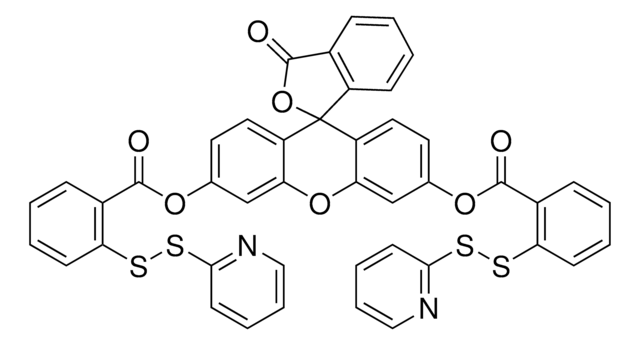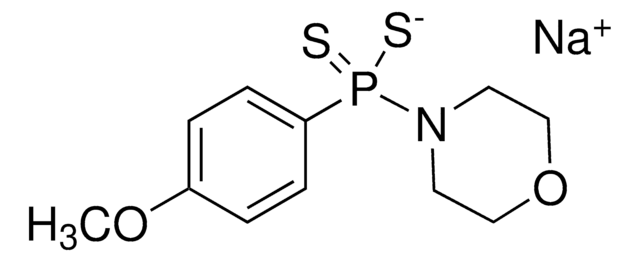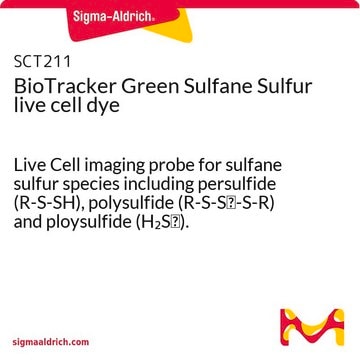802409
7-Azido-4-Methylcoumarin
97%
Sinónimos:
4-Methyl-7-azidocoumarin, 7-Azido-4-methyl-2H-1-benzopyran-2-one
About This Item
Productos recomendados
Quality Level
assay
97%
form
powder
mp
117.8 °C
SMILES string
CC1=CC(=O)Oc2cc(ccc12)N=[N+]=[N-]
InChI
1S/C10H7N3O2/c1-6-4-10(14)15-9-5-7(12-13-11)2-3-8(6)9/h2-5H,1H3
InChI key
HEKDKVLIMUWRRZ-UHFFFAOYSA-N
¿Está buscando productos similares? Visita Guía de comparación de productos
Application
Caution: Use of this product with DTT, TCEP and/or biological thiols >25mM should be avoided for maximum efficiency.
AzMC is readily soluble in DMSO.
Storage Class
11 - Combustible Solids
wgk_germany
WGK 3
flash_point_f
Not applicable
flash_point_c
Not applicable
Elija entre una de las versiones más recientes:
Certificados de análisis (COA)
¿No ve la versión correcta?
Si necesita una versión concreta, puede buscar un certificado específico por el número de lote.
¿Ya tiene este producto?
Encuentre la documentación para los productos que ha comprado recientemente en la Biblioteca de documentos.
Los clientes también vieron
Nuestro equipo de científicos tiene experiencia en todas las áreas de investigación: Ciencias de la vida, Ciencia de los materiales, Síntesis química, Cromatografía, Analítica y muchas otras.
Póngase en contacto con el Servicio técnico


![7-Diethylamino-3-[N-(2-maleimidoethyl)carbamoyl]coumarin suitable for fluorescence, BioReagent, ≥97.0% (HPLC)](/deepweb/assets/sigmaaldrich/product/structures/341/038/a7e0c464-8abe-4eb0-b253-6537f649d89c/640/a7e0c464-8abe-4eb0-b253-6537f649d89c.png)








